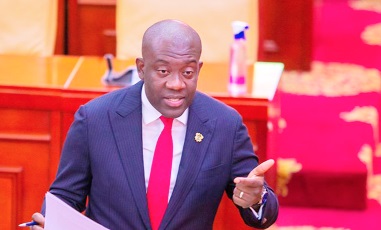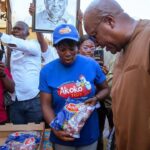The ongoing debate over rising utility tariffs has taken a sharper political turn as Ofoase-Ayirebi MP, and Ranking Member on Economy Committee, Kojo Oppong Nkrumah, directly criticized the Mahama-led NDC administration for what he described as a pattern of broken promises and economic burden on Ghanaians.
Speaking in Parliament, Oppong Nkrumah slammed the government’s decision to increase gas prices and implement quarterly utility tariff adjustments, arguing that these moves run contrary to earlier commitments made to ease the cost of living.
“You told us that you were going to use the special petroleum levy to cushion people who buy fuel from increased fuel prices. Between SONA, budget, and economic policy, you have conveniently forgotten about it,” the Ofoase-Ayirebi MP stated, pointing to what he believes is a deliberate evasion of accountability.
Citing recent changes in the energy pricing framework, Oppong Nkrumah revealed that the cost of gas used in electricity generation has been increased from $7 per MMBtu to $8 per MMBtu, a shift he warns will drive up electricity prices nationwide.
“Today, you have increased the cost of gas, which is used for producing electricity, from $7 per MMBTU to $8 per MMBTU. You know what it means. What it means is that the cost of power produced is going up,” he explained.
He further criticized the government’s decision to introduce regular quarterly adjustments in utility tariffs, describing it as a betrayal of the reset agenda promised to Ghanaians ahead of the 2024 elections.
“Then to add insult to injury, you have added to it that every three months there will be adjustments in utility tariffs. So what is going to happen is that utility tariffs are going to go up every three months,” he said. “Is this the reset that you promised the people of Ghana?”
Oppong Nkrumah’s comments come in response to the Minister for Finance, Dr. Cassiel Ato Forson’s presentation of the 2025 Budget Statement on March 11, in which he outlined key reforms in the energy sector aligned with the conditions of Ghana’s ongoing programme with the International Monetary Fund (IMF).
Dr. Forson announced that the Public Utilities Regulatory Commission (PURC) will maintain the Quarterly Tariff Adjustment system to reflect inflation, exchange rate volatility, and changes in the energy generation mix.
“Mr. Speaker, as agreed with the IMF by the previous administration, we will implement the following ESRP measures to achieve the Structural Benchmark of the IMF programme,” DForson said. “PURC will continue to implement the Quarterly Tariff Adjustment to reflect changes in inflation, exchange rate, and generation mix.”
He also confirmed a major tariff review is scheduled for the fourth quarter of 2025 to reflect rising costs.
“PURC will also undertake the major tariff adjustment which will be due in the 4th quarter of 2025 to reflect capacity charges, additional liquid fuel usage, and additional capex,” he explained.
In addition, Forson disclosed that the Weighted Average Cost of Gas will rise from $7.836 to $8.45 per MMBtu, citing increased global natural gas prices and supply mix changes.
The government will also reverse subsidies granted to certain ceramic companies under the Discounted Development Tariff.
“The subsidy on Weighted Average Cost of Gas granted to some ceramic companies through the Discounted Development Tariff will be reversed,” he confirmed.
While Forson maintains that these measures are necessary to stabilize the energy sector and ensure long-term sustainability, Oppong Nkrumah argues that the burden is being unfairly shifted onto ordinary Ghanaians—despite previous promises of relief and affordability.









